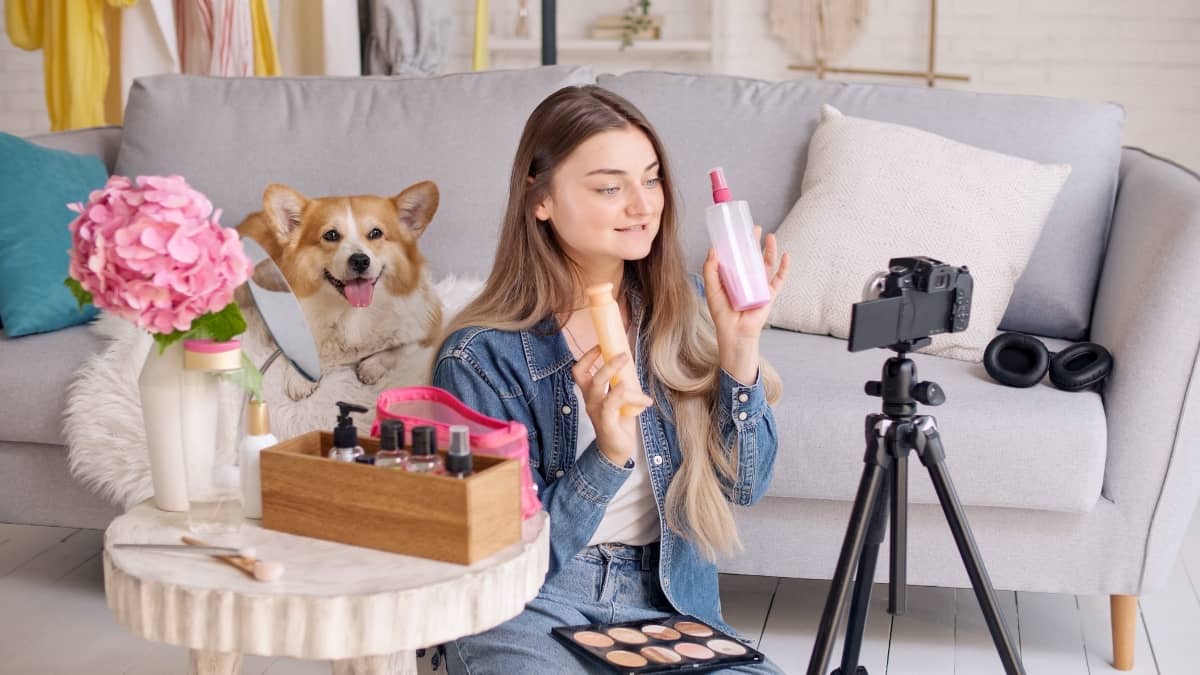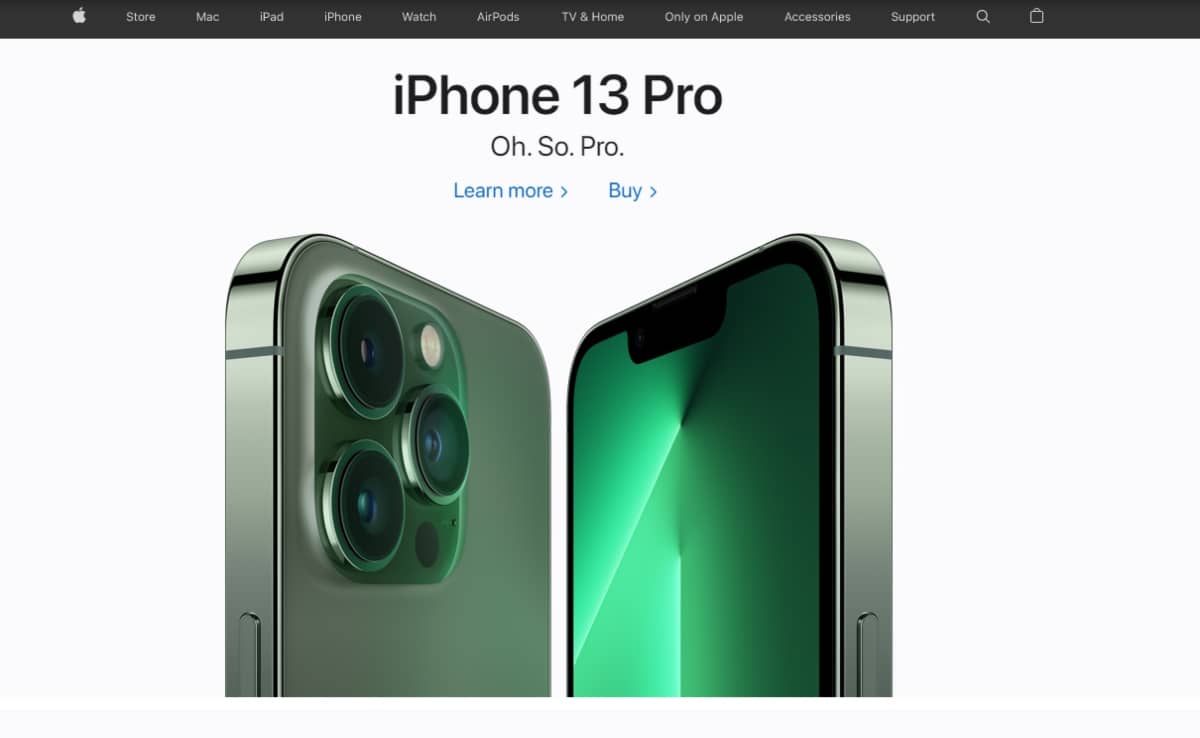Build Brand Loyalty in 2025 (10+ Ways to Drive Your Fans Wild!)
What does it mean to build brand loyalty?
And how do you establish a group of raving fans that can’t get enough of your products or services?

We’re glad you asked!
This post will answer these questions and give you the what, why, and how of building brand loyalty.
We’re going to help you create a following of loyal brand advocates that will uplevel your business in ways you never imagined!
Ready to jump in?
What Is Brand Loyalty?
Being creatures of habit, we tend to have that favorite coffee shop we frequent or a preferred brand of car that we like to drive.
Brand loyalty is a personal connection to something because we like the way it feels.
You might be wondering, “what happens when we are more concerned about getting a good deal for our money?”
Well, this conversation belongs to the category of customer loyalty.
Customer loyalty is more transactional, whereas brand loyalty is a gut feeling about a business’s offerings in general.
When building customer loyalty, you will focus on pricing strategy, discounts, and providing an outstanding customer experience. Customer loyalists trust your products.
To instill brand loyalty, you will need to dig deeper by creating a personal and emotional connection to your brand.
A brand advocate uses your products and services because they trust your brand.
Why Brand Loyalty Is Important

The beauty of brand loyalists lies in their willingness to purchase your digital products and services — increasing your bottom line consistently and creating a steady stream of repeat purchases.
Brand loyalists are not fair-weather customers looking to jump ship when the pricing of products goes beyond their expectations.
Instead, they are your loyal companions often doing the heavy lifting for you — word-of-mouth marketing.
Word-of-mouth marketing is the best form of advertising because it directly results from your brand ambassador’s desire to spread the word about your products and services — negating the need for overzealous ad-spend.
And they can dispel any doubt within a new customer's mind — taking them off the fence and turning them into loyal customers and, ultimately, brand loyalists.
In addition, a brand loyalist becomes your best social media influencer, especially if they have a considerable following.
Your advertising goes on autopilot when a brand loyalist mentions you through social media channels.
Brand Loyalty Stats
- 81% of consumers say they need to trust a brand before buying.
- Only 1 in 3 people say they can trust the brands they buy.
- 77% of loyal consumers say they’ve held relationships with brands for ten years.
- 75% of loyal customers will recommend a brand to friends and family.
- 40% of consumers aged 18 to 34 years old trust a brand due to an influencer.
- When emotionally connected to a brand, a repeat customer has a 306% higher customer lifetime value.
- 71% of customers who feel aligned with a brand will recommend it versus the average referral rate of 45%.
- 81% of consumers trust friends' and family's customer reviews over corporate testimonials.
Brand Loyalty Levels
Next, let’s discover the different levels of brand loyalty and the steps a consumer takes to become a person who lives and breathes your products.
Brand Recognition
The first step in the customer’s journey is brand awareness.
Exposure is the name of the game here. And lot’s of it! You want your audience to bump into your product as often as possible so that the mere mention of a product evokes a connection.
For instance, what do you reach for when you have to blow your nose? (Hopefully not toilet paper.)
You grab a “kleenex” no matter what brand of tissue because Kleenex is so ingrained in our collective culture.

Brand Preference
As in the previous Kleenex example, you see a brand preference; however, a consumer can still be swayed by the other brand if seen as comparable.
So it’s important to foster your brand's identity consistently to keep your products always front of mind.
Brand Insistence
Brand insistence is where brand evangelists emerge.
Customers identified as brand insistent no longer see competition with your product.
They are all in — not even price could sway them from using your competitors' offerings.
Every company dreams of having this level of brand commitment because it helps affirm why you’re in business.
How to Build Brand Loyalty
Now that it is crystal clear why you want a team of brand advocates — let’s dive into the mechanics of building brand loyalty.
1. Excel at Customer Service
Customer service begins when a consumer becomes a customer. And it’s the place where you step up your game — meaning you will want more customer engagement, not less because you are maintaining customer retention.
You may think excellent customer service is costly to maintain a team dedicated to nurturing your customer base.
However, as we have seen, the value of a customer devoted to your brand is more valuable in the long run.
And according to American Express, consumers spend 17% more with companies that deliver outstanding customer support.
2. Stand Out With A Memorable Brand Identity
Brand identity is all about the story you tell. How well do you weave your story through everything you do?
Questions to ask when you are building your brand’s identity:
- Does your brand encompass a personality?
- Do you have a distinguishable brand voice?
- Does your audience interact with your brand?
- Is there a story you want your brand to tell?
- Does your tagline or brand name evoke a feeling?
Then ask yourself, do the answers to these questions align with the needs of my best customer?
If not, keep tweaking until your brand identity aligns with your target audience.
3. Establish Trust and Authority
Establishing trust and authority is essential when building brand-loyal potential customers.
And some would argue that trust is more important to build than authority. When people perceive you as trustworthy — brand loyalty naturally follows.
One of the best ways to employ trustworthiness is employing the help of past experiences in the form of testimonials and customer feedback.
Testimonials from your loyal customer base facilitate social proof and encourage new customers to come aboard.
So, create a testimonial page that showcases your customer’s best experiences and displays them on your website and social media channels.
4. Craft a User Persona for Your Brand
A user persona — also known as a buyer persona — is an archetypal character that represents the goals and characteristics of your ideal audience and customer.
User personas include behavior patterns, goals, skills, attitudes, background information, and the environment the persona works from, plays, and lives.
To gather market research information:
- Interview your audience to discover their preferences.
- Pool feedback from your sales team.
- Use form fields on your website that pull in persona data.
- Segment your existing customer data to uncover customer loyalty, trends, and patterns.
You’ll then want to analyze the data and distill it into one solid persona that helps you build an effective digital marketing strategy.
☝️Pro Tip: Check out our guide to marketing segmentation to learn how to drill down your target audience even further. 🤓
5. Offer A Brand Loyalty Program
Loyalty reward programs keep current customers focused on your products instead of being swayed by a flashy discount from another competitor.
Customer loyalty programs add value like offering a point system that repeat customers can earn as they purchase and then cash in for products or rewards.
Companies that offer a customer loyalty program inherently create brand loyalists because the points become something worthwhile for customers to accumulate — representing free products soon.
And when your customers are busy accumulating points, they will most likely continue to buy from you because they want to earn more rewards.
6. Leverage Social Media
Forget about using social media as a vehicle to only talk about your products and services.
Social media is the perfect place to engage social media to tell your brand’s story — after all, isn’t that what this platform is all about?
We all like a good story, so create engaging content that shares your brand’s identity.
Also, look at how you can improve your comments back to followers who want to engage with your brand more.
And lastly, look at adding social proof by adding stories of current or previous customers so followers see you and your products in action.
🧐 You should also be taking a look at how your competitors are using social media. Lucky for you, we've got an excellent guide to conducting a social media competitor analysis. 🕵🏿
7. Nurture a Solid Brand Community
Building a community via social platforms creates a sense of belonging, fostering strong brand loyalty.
The following ideas champion the community vibe:
- Create an online group via Facebook or another platform.
- Use hashtags to tag others while promoting the identity of your brand.
- Respond to all comments and solicit feedback.
- Build an exclusive community with content marketing they cannot get elsewhere.
- Have your followers sign up for your exclusive newsletter, where added incentives and offers reside.
When customers feel a part of the in-crowd, they can’t help but feel special. That feeling often translates into brand loyalty.
8. Foster Brand Consistency
Brand consistency infuses strong brand identity into everything you do — from your brand logo to customer loyalty and service and new product innovation.
And sure, it might seem easy to let things slide when your business is doing well — however, this is when you must remain vigilant in your consistency because customers can become lost when companies become too big.
In addition, when you stay consistent with your brand across all channels, your audience comes to rely upon you — ultimately building trust.
When you're a trusted brand, your audience can naturally turn into brand advocates and raving fans.
9. Utilize Personalized Messaging
The 2021 Retail Customer Loyalty report found that marketers that exceeded their revenue goals had personalized marketing campaigns.

The following ideas can help you personalize your brand strategy:
- Use content marketing that adds value to your audience by targeting what’s most valuable to them.
- Offer email marketing campaigns that personally address your customers at opportune moments — like birthdays and anniversaries.
- Retarget consumers to address the 98% of prospects that don’t convert right away.
Personalization shows your audience that you care enough to reach out, even with automated marketing messaging.
10. Set Your Brand Apart With An Eye-Popping Logo
The visual appearance of a logo conveys a vibe or feeling that embraces a prospect or turns them off — based on their personal experience with color.
Check out these colors and what they mean:
- Red is eye-catching and implies the energies of passion and power.
- Orange gives the feeling of being bright, sunny, welcoming and imbues the characteristics of trust.
- Yellow offers a positive, happy and uplifting experience. It can also convey caution and warning.
- Green is a holistic color expressing eco-minded consciousness.
- Blue says you can trust me. And it offers the experience of tranquility.
11. Work With Influencers

As we’ve learned before, people find word-of-mouth marketing more reliable.
And surprisingly, even if that endorsement comes from someone they don’t know, a prospect will deem the testimonial more credible than company advocacy.
So, influencer marketing is an incredibly viable way to promote your products.
Finding the right influencer can take some research and time to evaluate.
And you have to be sure to pick someone that is respected and has similar values as your business.
You can also hire services like HYPR that connect brands with influencers based on their specific audience and demographics to save yourself some time.
12. Tweak Your Products or Services
Loyal customers come to rely on trustworthy products or services.
And you may be thinking this is obvious.
Still, you’d be surprised how often complacency replaces innovation, especially when a company starts to overgrow without the proper infrastructure.
Your continual investment in upgrading features and keeping pace with technology is the best way to influence brand loyalty.
Great Brand Loyalty Examples
This list is just a snapshot of a few wildly popular brands worth mentioning.
Apple

Since Apple’s inception in the 1970s, their brand has cultivated an almost cult-like following — based on their ability to continually innovate in a minimalist way and offer outstanding customer satisfaction and service.
Starbucks

Starbucks is not the cheapest cup of joe you will buy, so why does it have such an enormous brand following and happy customers? Convenience loyalty!
Starbucks utilizes an app that guesses where you would like to pick up your coffee and offers alternative places to pick up your coffee — taking the guesswork out of needing to know where to go.
Coca-Cola

Coca-Cola is a genius at using marketing strategies aimed at building community. For decades they have been able to unite people in a way that automatically cultivates brand loyalty.
Remember the catchy tune in the 1970s commercial singing, “I’d like to teach the world to sing, in perfect harmony...”? This song emphasizes the coming together of all people regardless of race.
Coca-Cola is a brand built on non-discrimination that transcends the consumption of its products.
When you drink Coca-Cola, you identify with the values of inclusivity.
Amazon

You cannot live in the 21st century and escape the knowledge of this brand unless you are living in a cave in the Himalayan mountains.
Amazon is the biggest shopping eCommerce platform in the world.
Obsessed with customer loyalty, and feedback, Amazon continually has its pulse on what prospects desire.
What Builds Brand Loyalty for You?
How does your favorite brand manage to create raving fans?
Using this post, ask yourself, what specific brand do you advocate?
And what drove you there that you could emulate in your business?
And when you take and apply the teachings from this post — you will equip yourself with the keys needed to upgrade your customers.
A certified content marketer with Smart Blogger, Kris Freeman, knows how to please the ‘Google Gods’ so that your content gets noticed, is cool to read, and starts to rank in Google. As a business owner, Kris has seen firsthand how mediocre businesses become unstoppable pursuits when Google starts to consider you relevant. You can find more of Kris's work at kriscfreeman.com or at her personal blog.